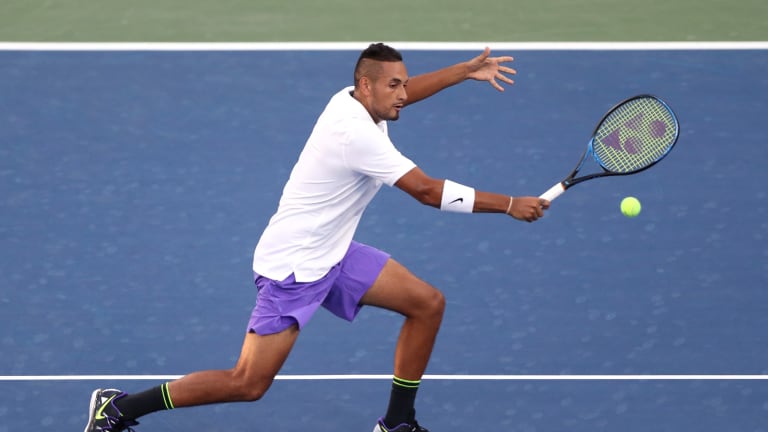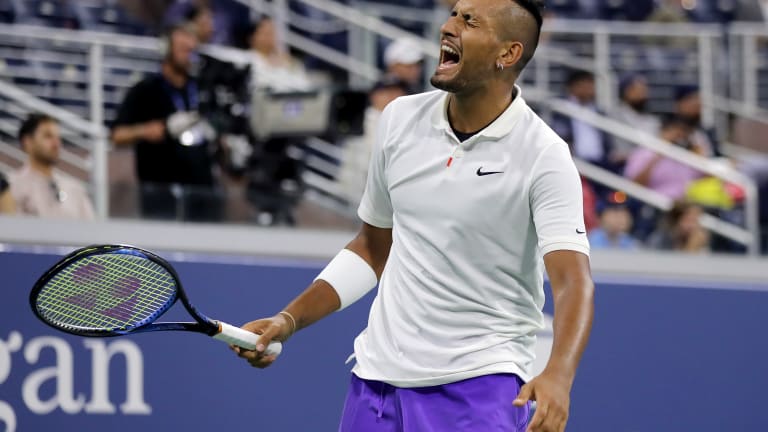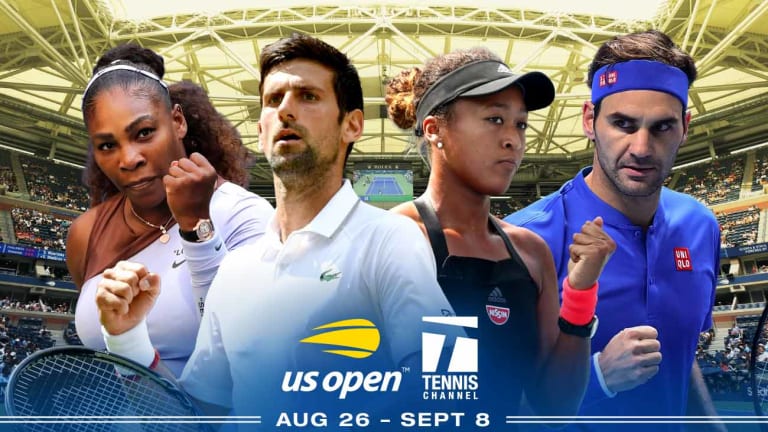US Open
The love-hate song of Nick Kyrgios plays on at the US Open
By Aug 29, 2019US Open
US Open revamps mixed doubles format, adds $1 million prize to incentivize "biggest names in the sport"
By Feb 11, 2025US Open
US Open adds a 15th day, moves to Sunday start in 2025
By Jan 29, 2025US Open
Post-2024 US Open WTA storylines: The Age of Aryna; what's next for Swiatek and Gauff?
By Sep 09, 2024US Open
Post-2024 US Open ATP storylines: The race between Alcaraz and Sinner for No. 1 ... and more
By Sep 09, 2024US Open
Jannik Sinner’s US Open title run won’t clear the air around him entirely
By Sep 09, 2024US Open
Taylor Fritz fails in US Open final, but hope springs for American men's tennis
By Sep 09, 2024US Open
Jannik Sinner storms to second major title, defeats Swift, Kelce-backed Taylor Fritz at US Open
By Sep 08, 2024US Open
Jessica Pegula's willingness to take chances paid off at the US Open
By Sep 08, 2024US Open
Aryna Sabalenka won her first US Open by learning from her past heartbreaks in New York
By Sep 08, 2024US Open
The love-hate song of Nick Kyrgios plays on at the US Open
The Australian asserted himself from the start to convincingly dispatch Antoine Hoang in straight sets on Thursday in New York.
Published Aug 29, 2019
Advertising

The love-hate song of Nick Kyrgios plays on at the US Open
© Getty Images
Advertising

The love-hate song of Nick Kyrgios plays on at the US Open
© Getty Images
Advertising

The love-hate song of Nick Kyrgios plays on at the US Open